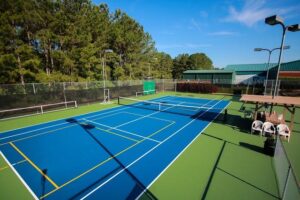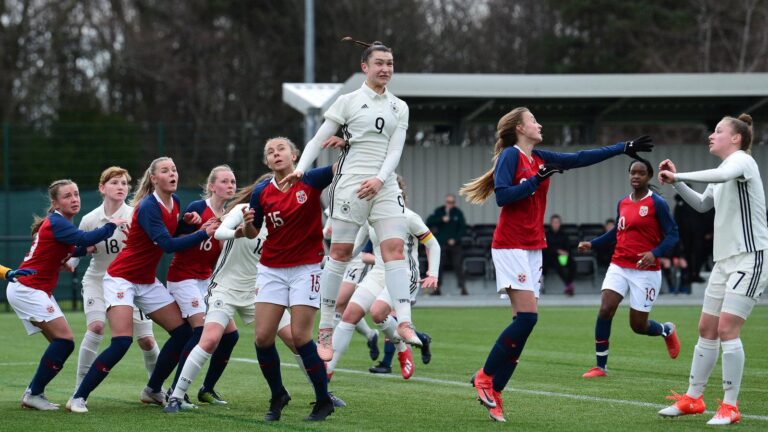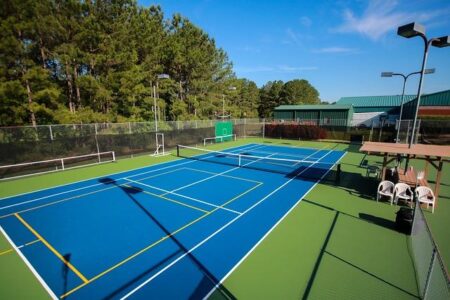Norway has long been recognized for producing world-class athletes across a variety of sports, and a new perspective on their success points to a key factor: a hands-off approach to youth sports. Unlike many countries that emphasize early specialization and intensive training, Norway’s model prioritizes enjoyment, broad participation, and minimal pressure on young athletes. This approach, highlighted in a recent San Diego Union-Tribune report, suggests that nurturing a love for the game rather than focusing on competition at an early age may be the secret behind Norway’s sustained athletic excellence as players mature.
Norway’s Unconventional Youth Sports Philosophy Fosters Long-Term Athlete Development
At the heart of Norway’s unexpected dominance in international sports lies a unique philosophy that prioritizes athlete development over early specialization. Norwegian youth sports programs emphasize enjoyment, social bonding, and diverse physical activity rather than intense competition from a young age. This method fosters a well-rounded skill set, minimizing burnout and injuries, which often plague young athletes elsewhere. Coaches and parents are encouraged to let kids explore multiple sports unpressured, creating a more sustainable and joyful sporting journey.
Key Components of Norway’s Youth Sports Model:
- Delayed specialization: Athletes sample various sports before committing.
- Focus on fun: Games and practices emphasize play and intrinsic motivation.
- Minimal adult pressure: Parents and coaches take a backseat role during early development.
- Community-based programs: Emphasis on accessibility and inclusivity rather than elite recruitment.
| Age Group | Primary Focus | Competitive Intensity |
|---|---|---|
| 6-12 years | Skill variety, enjoyment | Low |
| 13-15 years | Development with some competition | Moderate |
| 16+ years | Specialization and high-level training | High |
Emphasizing Play Over Pressure How Norway Prioritizes Enjoyment in Youth Athletics
In Norway, the focus within youth athletics is distinctly on fostering enjoyment rather than enforcing competition. Coaches and parents alike encourage children to engage in various sports activities at their own pace, ensuring the experience remains lighthearted and fun. This relaxed environment allows young athletes to develop a genuine passion, promoting long-term engagement rather than early burnout. By removing early specialization and intense pressure, Norwegian youth are given the freedom to explore different disciplines, building a broad foundation of skills.
Their approach is underpinned by several key principles:
- Physical literacy over performance: Emphasizing movement skills and body awareness rather than competition results.
- Child-led participation: Allowing kids to choose activities they enjoy rather than pushing them into structured training regimens.
- Minimal rankings and scoring: Downplaying leaderboards to reduce stress and maintain curiosity.
| Norwegian Youth Sports Approach | Expected Outcome |
|---|---|
| Encouragement of multi-sport play | Enhanced versatility and motor skills |
| No early specialization or intense competition | Longer athletic careers and higher motivation |
| Playful learning environment | Stronger psychological resilience |
The Role of Minimal Specialization in Building Versatile and Resilient Athletes
Norway’s success on the international sports stage can largely be attributed to a deliberate strategy that discourages early specialization. Instead of pushing young athletes to focus solely on one sport, the system encourages them to engage in multiple disciplines. This approach fosters not only a broad range of motor skills but also helps prevent burnout and overuse injuries. By developing a versatile athletic foundation, young sportspeople gain the physical literacy needed to adapt to different challenges and excel in their chosen fields later on.
Research underscores several benefits linked to minimal specialization, highlighted in the table below:
| Benefit | Impact on Athlete Development |
|---|---|
| Reduced Injury Risk | Allows for balanced muscular development and recovery periods |
| Enhanced Skill Transfer | Promotes adaptability across sports and scenarios |
| Increased Motivation | Maintains enthusiasm by avoiding monotony and pressure |
Ultimately, Norway’s hands-off philosophy nurtures not just physical ability but psychological resilience, equipping athletes with the tools to perform sustainably at elite levels. This diversified early experience cultivates a robust sports culture that values growth, enjoyment, and long-term excellence.
Lessons for American Youth Sports Programs Adopting a More Patient, Holistic Approach
American youth sports programs stand to gain valuable insights from Norway’s emphasis on fostering long-term development rather than immediate results. By allowing children to explore a variety of sports at their own pace and minimizing early specialization, Norway cultivates intrinsic motivation and a genuine love for athletics. This patient approach reduces burnout and injury risks, promoting sustained participation well into adulthood. Programs focusing on enjoyment, skill development, and social engagement create a nurturing environment that encourages resilience and adaptability—qualities essential for athletic excellence over time.
Implementing such a model could involve:
- Prioritizing multi-sport participation to develop diverse motor skills and prevent overuse injuries
- Encouraging coaches to act as mentors emphasizing personal growth over competition
- Reducing pressure on outcomes during early years to foster a love for the game and intrinsic motivation
- Creating safe, inclusive environments where all kids feel welcome regardless of skill level
| Norwegian Model | Traditional American Model |
|---|---|
| Focus on enjoyment and development | Early specialization and competition |
| Multi-sport participation encouraged | Single-sport emphasis from early age |
| Player-led progression | Coach-driven outcomes |
| Low pressure, high inclusion | High pressure, selective teams |
In Conclusion
Norway’s unconventional, hands-off approach to youth sports offers a compelling alternative to the overly competitive, results-driven models seen elsewhere. By prioritizing play, enjoyment, and long-term development over early specialization and pressure, Norwegian athletes appear better prepared to excel when they reach the professional level. As the San Diego Union-Tribune highlights, this model challenges traditional assumptions about youth sports and invites coaches, parents, and sports organizations around the world to rethink how best to nurture the next generation of champions.







